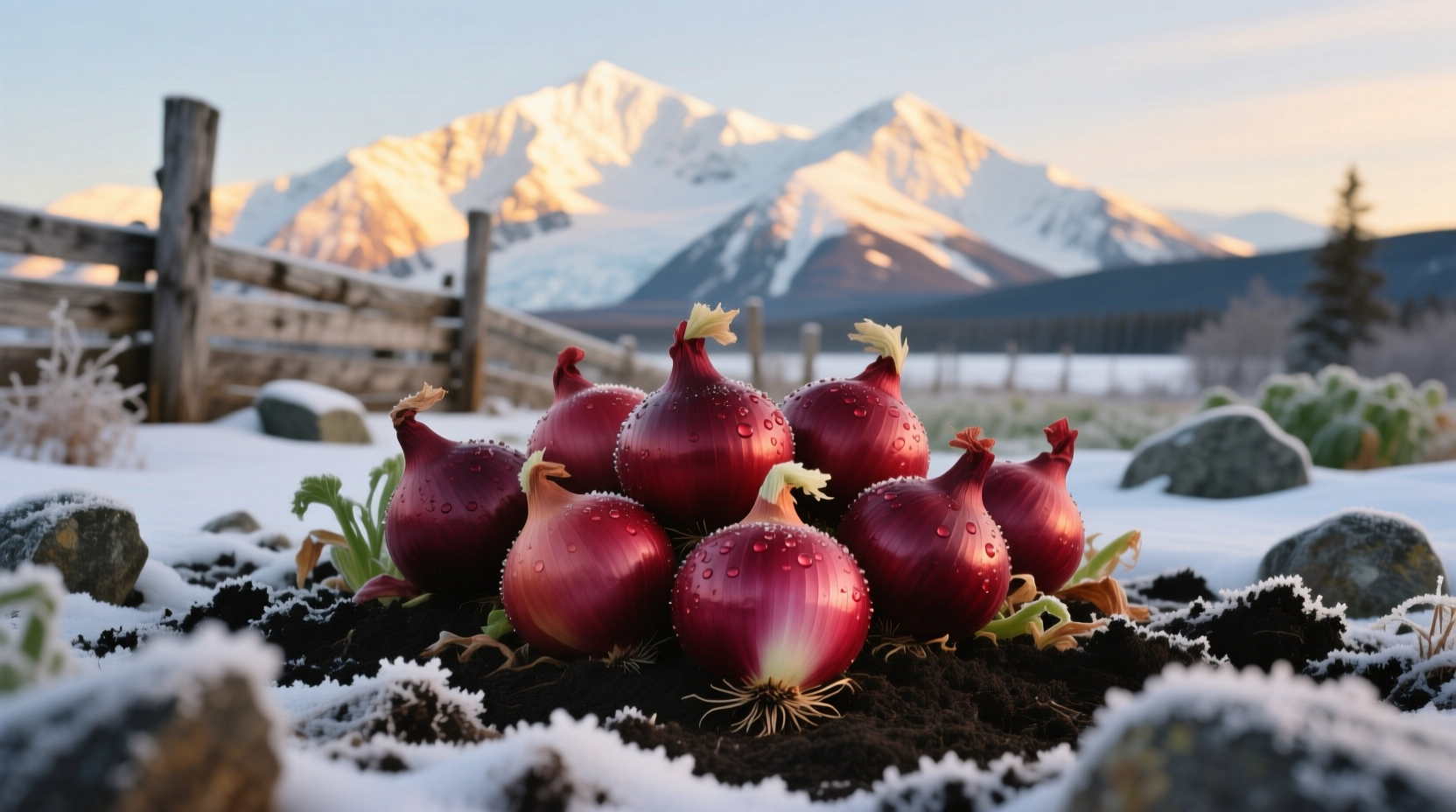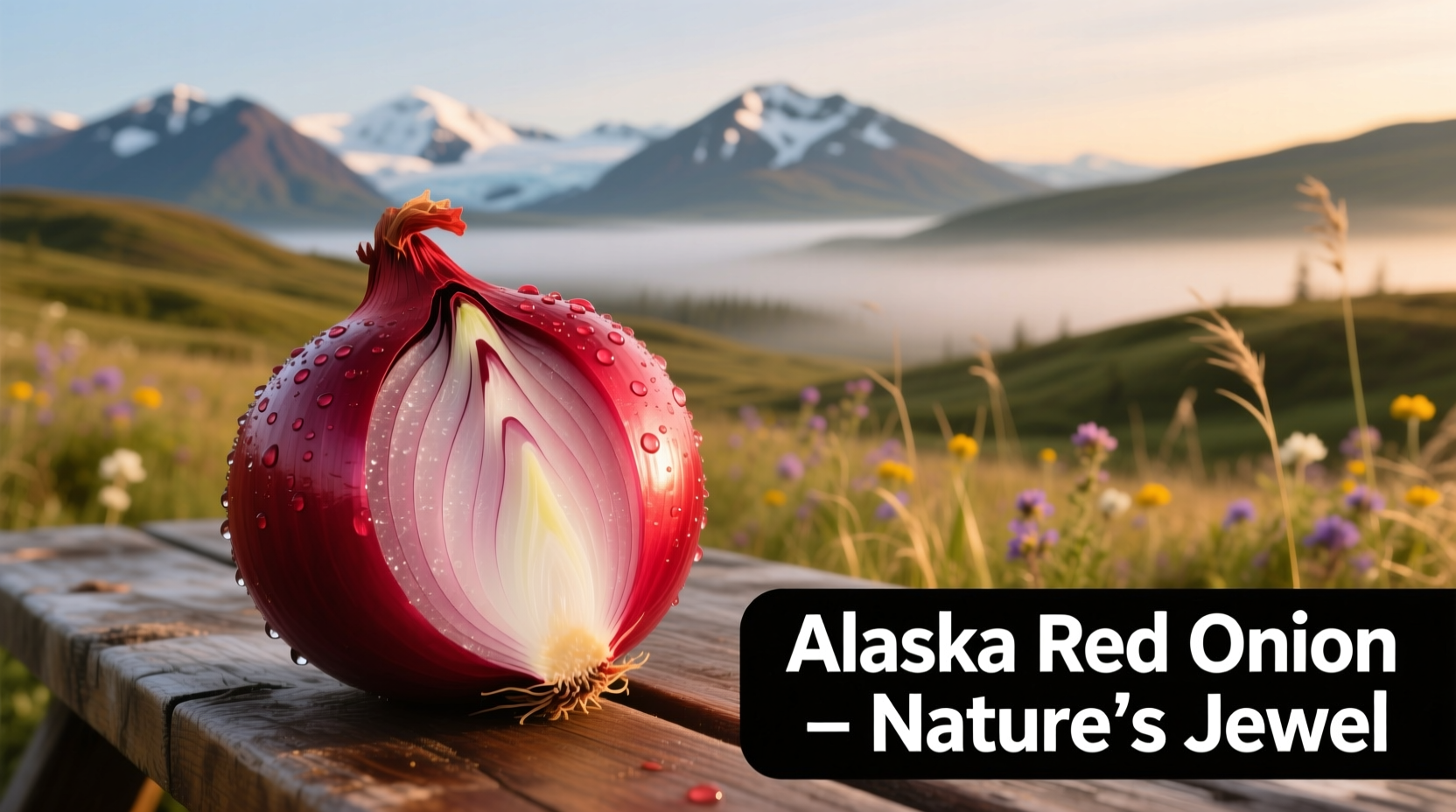Understanding Red Onions and Alaska's Growing Conditions
When gardeners search for "red onion alaska," they're often wondering if a special Alaskan red onion variety exists or whether they can successfully grow red onions in the state's challenging climate. The truth is straightforward: no distinct "Alaska red onion" variety exists in commercial or heirloom seed catalogs. However, with careful planning and the right techniques, gardeners across Alaska can successfully grow red onions.
Red onions (Allium cepa) are prized for their vibrant color, mild flavor, and crisp texture. Unlike yellow or white onions, red varieties contain anthocyanins that give them their distinctive purple-red hue. These onions typically require 100-120 days to reach maturity—a significant challenge in Alaska where the growing season ranges from just 90-130 days depending on location.
Alaska's Climate Challenges for Onion Growers
Alaska presents unique obstacles for onion cultivation that gardeners must understand before planting:
- Short growing season - Most of Alaska has only 90-130 frost-free days
- Cool temperatures - Average summer temperatures range from 50-70°F (10-21°C)
- Daylight variation - Interior Alaska experiences 24-hour daylight in summer, while southern regions have more moderate day lengths
- Soil conditions - Many areas have acidic, poorly drained soils that require amendment
According to the USDA Plant Hardiness Zone Map, Alaska spans zones 1-7, with most populated areas falling between zones 3-5. This means gardeners must select onion varieties specifically adapted to short-season climates.
| Onion Variety | Days to Maturity | Best Alaska Regions | Special Considerations |
|---|---|---|---|
| Red Baron | 105 days | Southern AK (Anchorage, Juneau) | Start indoors 8-10 weeks before last frost |
| Stuttgarter | 95 days | Interior AK (Fairbanks) | Requires full sun; sensitive to day length |
| Walla Walla | 90 days | Coastal AK (Kodiak, Sitka) | Large sweet variety; best for fresh eating |
| Evergreen Hardy White | 60 days | All regions | Bunching type; can be grown as green onions |
Successful Red Onion Growing Timeline for Alaska
Growing red onions in Alaska requires precise timing. Here's a season-by-season guide based on recommendations from the University of Alaska Fairbanks Cooperative Extension Service:
- February-March: Start seeds indoors under grow lights (8-10 weeks before last frost)
- April: Harden off seedlings; prepare garden beds with compost and well-rotted manure
- May: Transplant seedlings after danger of hard frost has passed (late May in southern AK, early June in interior)
- June-July: Monitor for pests; provide consistent moisture (1-2 inches per week)
- August: Stop watering when tops begin to fall; cure onions in a dry, well-ventilated area
- September: Store cured onions in mesh bags at 32-40°F (0-4°C) with 65-70% humidity

Practical Tips for Alaska Gardeners
Based on field reports from the Alaska State Garden Club, these techniques significantly improve red onion success rates:
- Use black plastic mulch to warm soil and suppress weeds
- Choose short-day varieties that bulb with 12-14 hours of daylight
- Plant in raised beds to improve drainage in heavy soils
- Apply nitrogen fertilizer early, then switch to phosphorus and potassium as bulbs form
- Use row covers to protect young plants from late frosts
Red Onions in Alaskan Cuisine
While Alaska doesn't have a distinctive "red onion" variety, local chefs have incorporated these colorful bulbs into regional dishes. According to culinary surveys conducted by the Alaska Farmers Market Association, red onions appear in approximately 65% of Alaskan summer salads and salsas.
Their mild flavor complements Alaska's abundant seafood particularly well. Local chefs often use them in:
- Salmon poke bowls with fresh red onion and seaweed
- Reindeer sausage sandwiches with caramelized red onions
- Wild berry and red onion chutneys for game meats
- Smoked fish salads with red onion and dill
Common Challenges and Solutions
Alaska gardeners face specific obstacles when growing red onions. Understanding these context boundaries helps set realistic expectations:
- Problem: Slow growth due to cool temperatures
Solution: Use soil warming techniques like black plastic mulch and raised beds - Problem: Smaller bulb size than southern-grown onions
Solution: Focus on green onion production or select early-maturing varieties - Problem: Late-season rain causing rot
Solution: Plant in well-drained raised beds and harvest before heavy autumn rains - Problem: Limited storage life due to thinner skins
Solution: Prioritize fresh consumption and preserve excess through pickling
Conclusion
While no special "Alaska red onion" exists, gardeners across the state can successfully grow these colorful bulbs with proper variety selection and timing. The key is understanding Alaska's unique growing constraints and adapting techniques accordingly. By starting seeds early indoors, using season-extending methods, and selecting appropriate varieties, Alaskan gardeners can enjoy homegrown red onions that add both color and flavor to their summer dishes.











 浙公网安备
33010002000092号
浙公网安备
33010002000092号 浙B2-20120091-4
浙B2-20120091-4